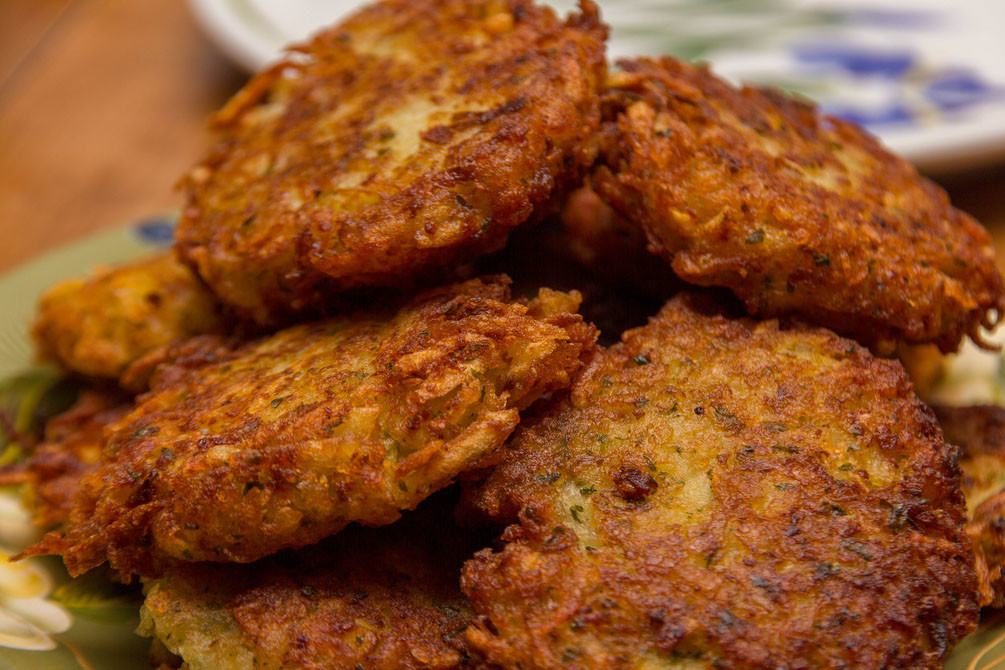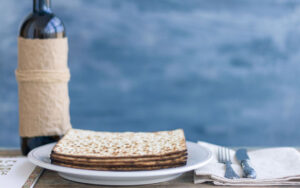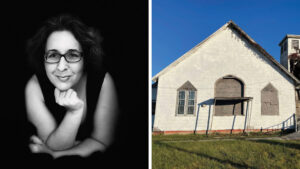By the My Jewish Learning Staff
How do you pronounce Chanukah? Is there a correct spelling for the holiday? Why does Chanukah last eight days? And what’s with the dreidel and the presents?
These are just some of the most frequently asked questions about the Festival of Lights, which starts this year on Dec. 12 and ends on Dec. 20.
Here are the answers to those questions and more.
How do you pronounce Chanukah?
Generally, English speakers pronounce it HAH-nuh-kuh. But some people prefer the Hebrew pronunciation, which is khah-new-KAH.
Is there a correct way to spell it?
Chanukah is a Hebrew word, not an English one, so there is no standard transliteration. You can use “Chanukah,” “Hanukkah,” “Chanukka” or “Hanukka.”
Why does Chanukah last eight days?
One explanation is that Chanukah commemorates not just the Maccabees’ victory and rededication of the Temple, but the miracle of the oil: one day’s supply for the Temple lamp lasted eight days. Another explanation is that the first Chanukah celebration was actually a delayed Sukkot celebration, and Sukkot — which like Passover is a pilgrimage festival — traditionally lasts eight days.
What is Chanukah about?
Chanukah celebrates the Maccabees’ rededication of the Temple in Jerusalem after its defilement by the Syrian Greeks in 164 B.C.E. According to rabbinic tradition, the holiday also commemorates the miracle of the oil noted above.
Some people see Chanukah as a celebration of religious freedom, whereas others see it as a triumph of tradition over assimilation. For many people, it is simply an opportunity for festivity during the darkest time of the year, the winter solstice.
Why does Chanukah fall on a different date each year?
Chanukah always falls on the 25th of the Hebrew month of Kislev, which usually is sometime in December. Because the Jewish calendar is a combination of solar and lunar, the date on the Gregorian calendar fluctuates each year.
Is the candelabra lit on Chanukah called a menorah or a chanukiah?
Menorah simply means lamp and can refer to other candelabras. A chanukiah is a candelabra specifically for use on Chanukah. However, many people call it a menorah or Chanukah menorah.
Why do Jews spin the dreidel on Chanukah?
There are different explanations for this tradition, but historians believe the dreidel is an adaptation of another top-spinning game that Europeans played at Christmastime.
Do Jews traditionally exchange gifts on all eight nights of Chanukah?
Actually, exchanging gifts on Chanukah is a relatively new tradition. American Jews used to exchange gifts on Purim, but in the late 19th century there was a shift from Purim to Chanukah. Christmas, which falls at the same time of year, became a national holiday in America at this time, and the Jewish custom of gifts on Chanukah shifted as the Christian holiday’s consumerism grew. When it comes to how many gifts to exchange and when, families have different traditions. Many people prefer to limit the gift exchange to just a few nights to de-emphasize the materialistic aspects of the holiday.
Why is the first night of Chanukah one day before the date listed on my calendar?
While dates on the Gregorian calendar begin at midnight, dates on the Hebrew calendar begin at sundown — that means a holiday starts hours before the corresponding date on the Gregorian calendar. This difference is particularly noticeable on Chanukah, since celebrations tend to take place at night rather than during the day. So while your calendar may say Chanukah starts on Dec. 13, it actually begins the preceding evening.
Do Jews traditionally go to synagogue on Chanukah?
Jewish law does not require Jews to observe Chanukah anywhere outside the home. However, some special liturgy and readings are added to the daily and Shabbat prayer services that take place during Chanukah.
The story of the Maccabees isn’t in the Bible, so where is it?
The Book of Maccabees, in which the Chanukah story is detailed, was not included in the Hebrew Bible and instead is in a category of texts called Apocrypha. For centuries, some Jews used to read the story from an Aramaic-language scroll called The Scroll of Antiochus, which detailed the Maccabees’ victories and added numerous legends.
Why do Jews eat greasy food on Chanukah?
It is traditional to eat fried foods such as latkes and jelly doughnuts (called sufganiyot in Hebrew) as a way of commemorating the miracle of the oil that lasted eight days. If you’re worried about the health (or waistline) implications, try baking your latkes — or consider celebrating the oil by dipping bread into a variety of gourmet olive oils.
Another traditional Chanukah food, cheese, unfortunately isn’t much better for those concerned about fat. The cheese tradition is in honor of Judith, a woman who helped the Maccabee effort by feeding salty cheese and wine to one of Antiochus’ generals — and then beheading him.
Visit My Jewish Learning at myjewishlearning.com. This article was provided by the JTA international news agency and wire service.
Top photo: Latkes (Flickr Commons)
[box type=”shadow”]Holidays 2017: How to Survive the Season
Jmore’s holiday guide includes Chanukah recipes, holiday event ideas, seasonal traditions, party dresses, gift ideas and lots more. Get festive here.[/box]





